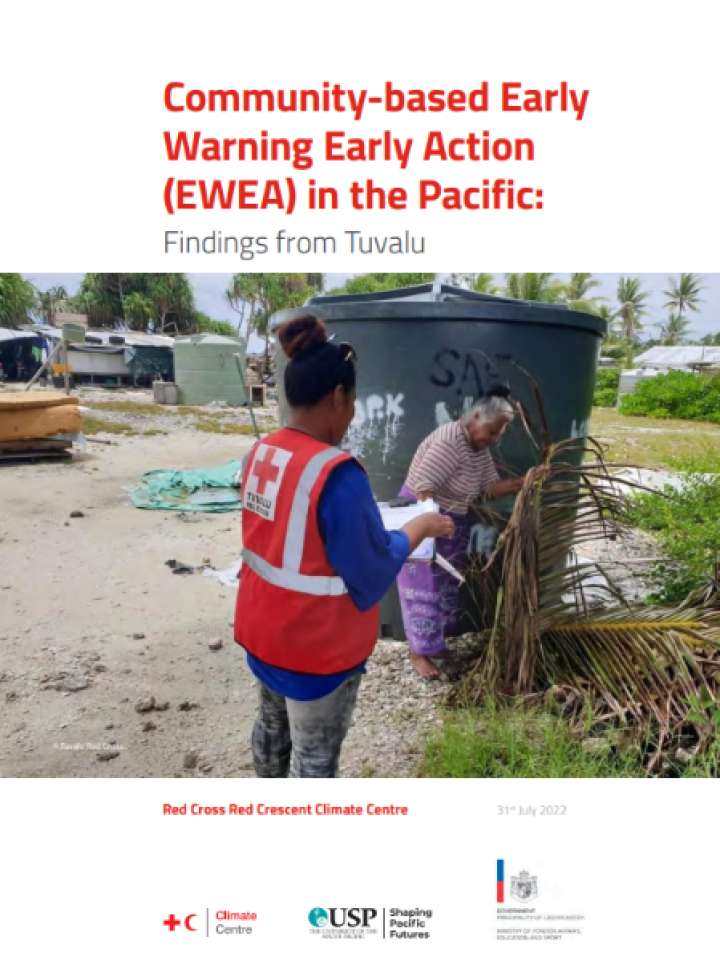Community-based Early Warning Early Action (EWEA) in the Pacific: Findings from Tuvalu
This research study on Community-based Early Warning Early Action (EWEA) in the Pacific has explored opportunities for strengthening EWEA in the Pacific, focusing on understanding local practices at the community level, while recognizing that these are often shaped by national and regional policy frameworks. It seeks to capture evidence on impacts as well as response mechanisms and identify ways to strengthen and build on these models. Research was conducted in Tuvalu which was chosen as a case study to document existing strengths of EWEA systems on the island nation. This report focuses on drought and EWEA in Tuvalu.
This report finds that there is a need to strengthen water management at the community level, particularly water storage needs for households. In conjunction, early warning messages must communicate correct drought information, such as when it will start and how long it will last. Training opportunities must be targeted for women and men to reach people at times when they are available. Expanding individual, household and community skills is also vital, alongside expanding knowledge about what can be done, what resources are required and what simple measures can be taken, while recognizing and acknowledging where actions are already being taken.
Explore further
